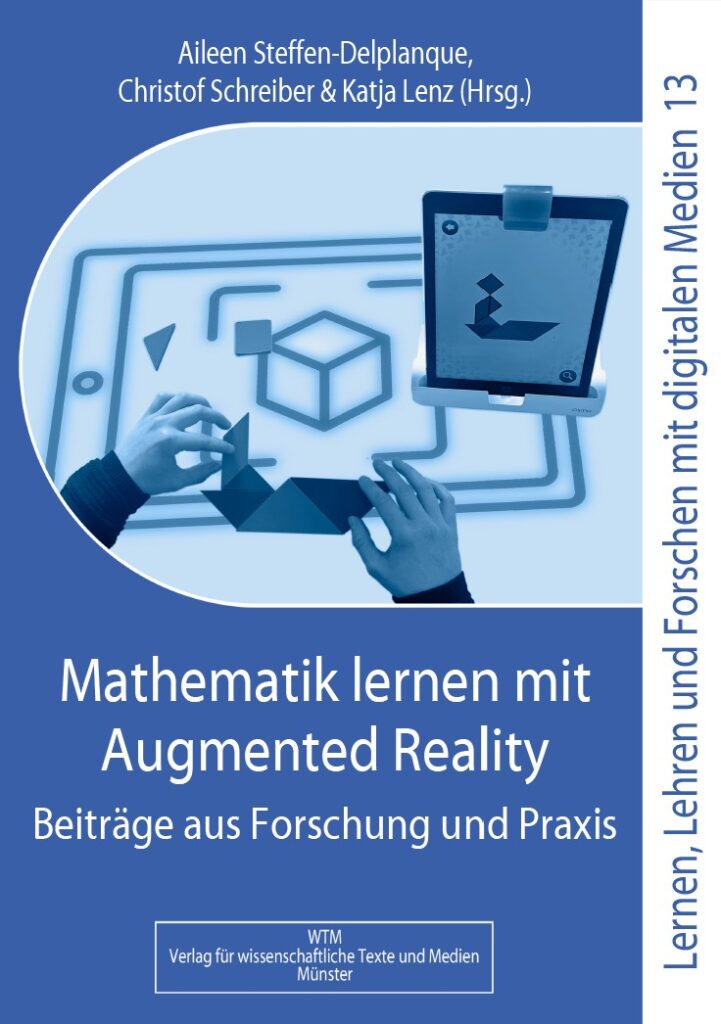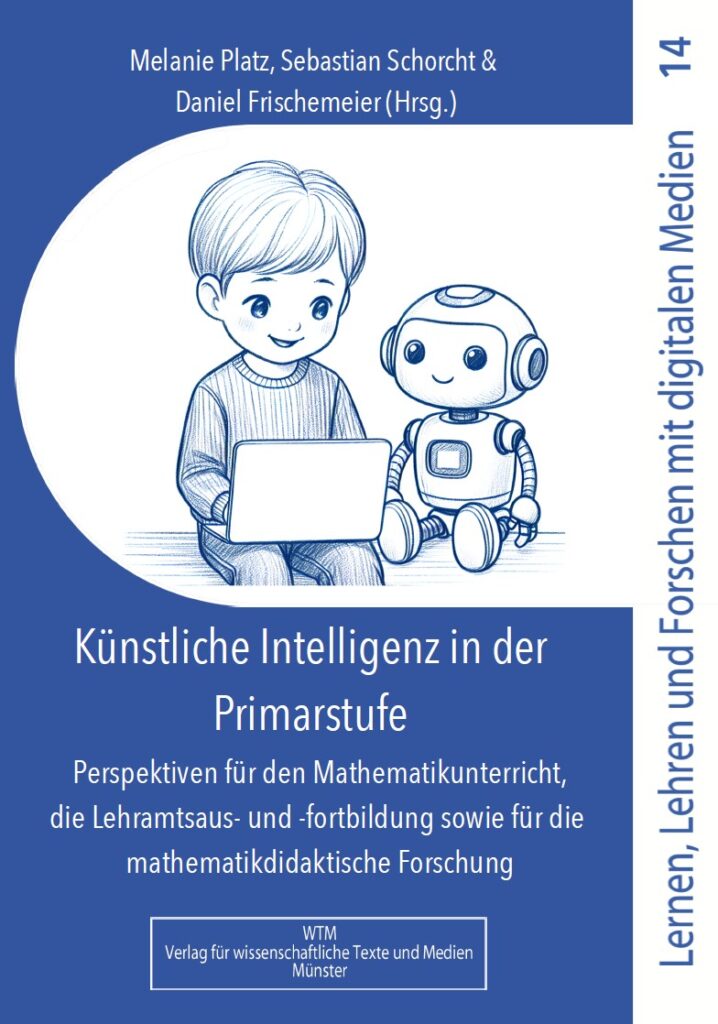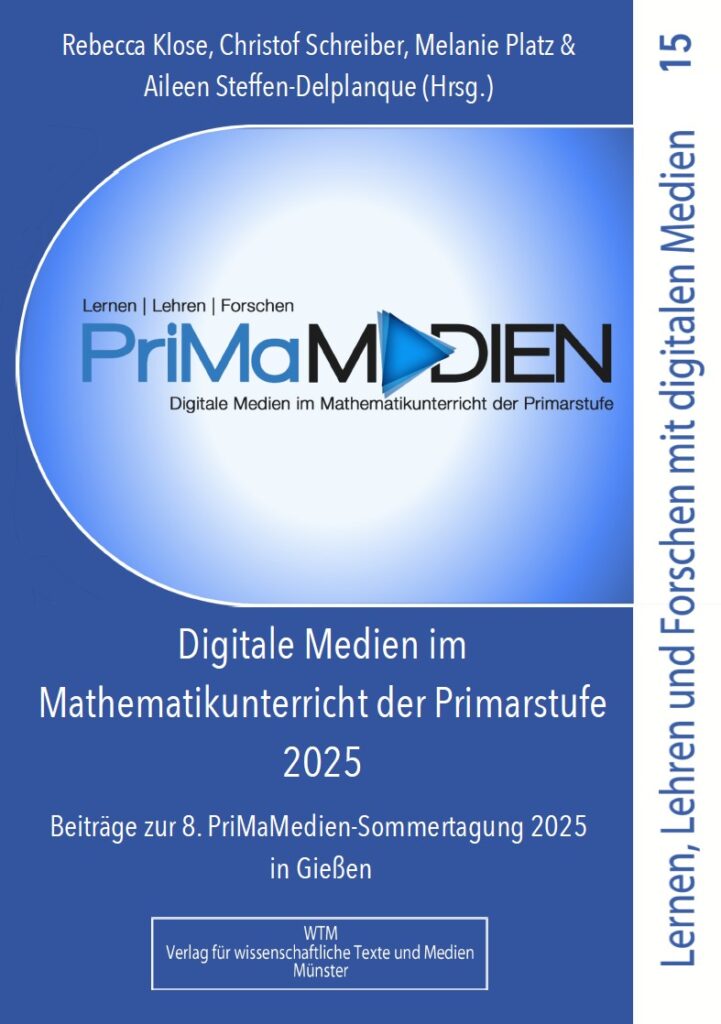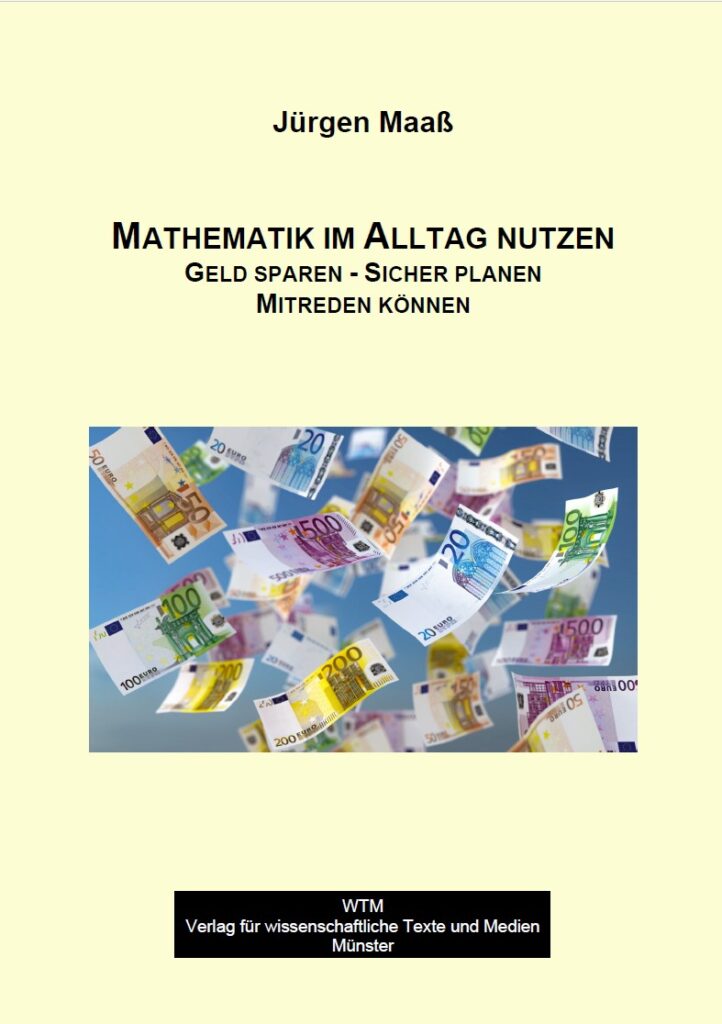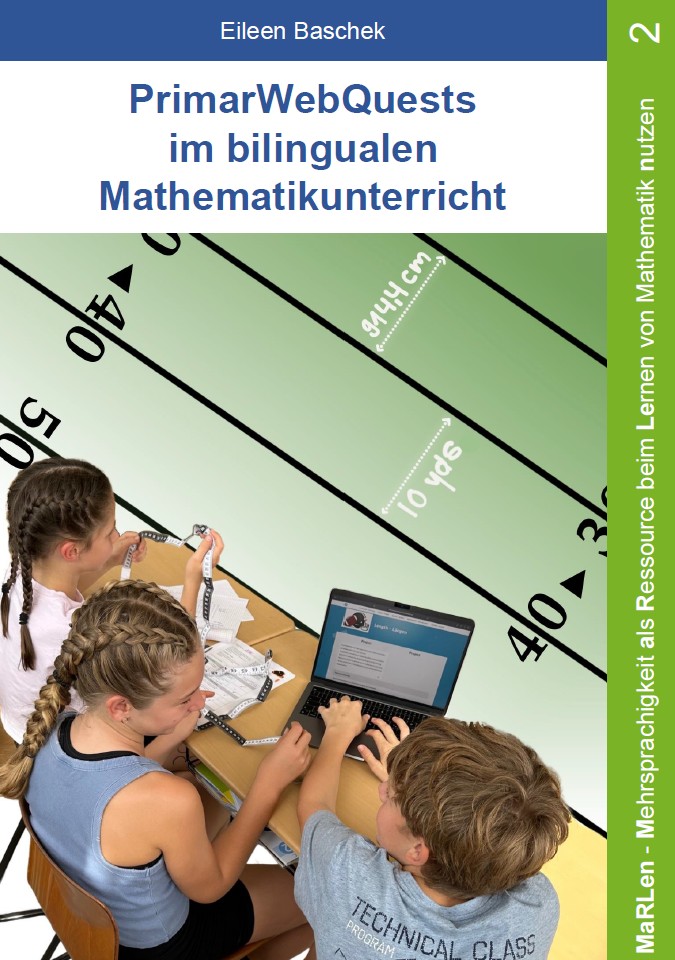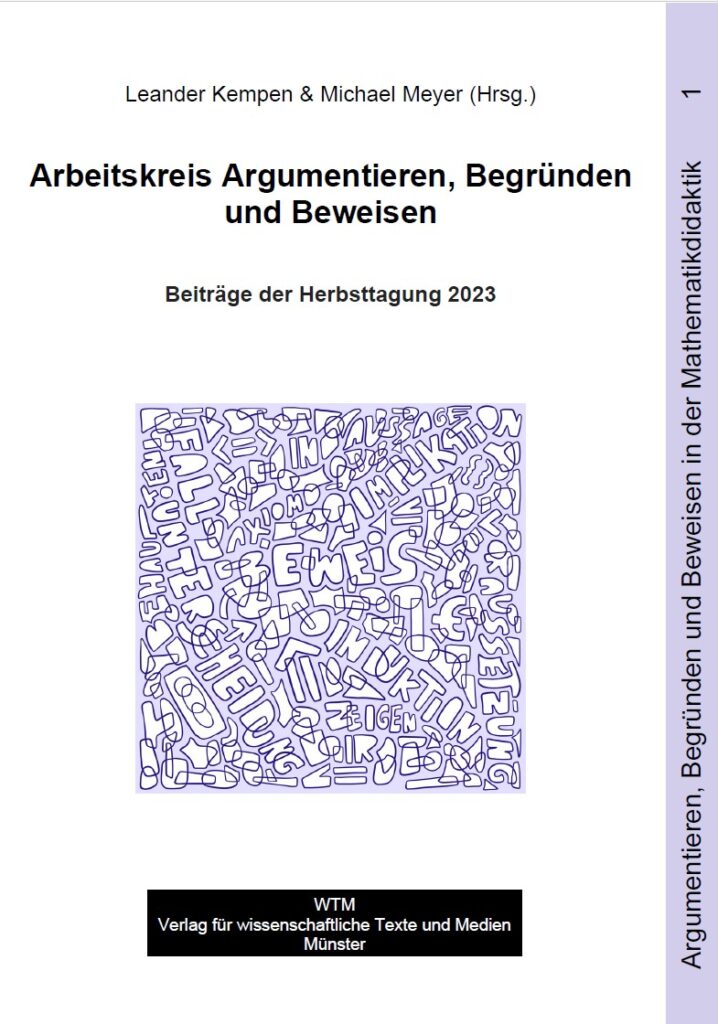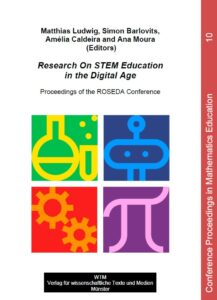 Proceedings of the ROSEDA Conference
Proceedings of the ROSEDA Conference
Band 10 der Reihe Conference Proceedings in Mathematics Education
Münster 2023, DIN A5 s/w Graustufen
Print: ISBN 978-3-95987-251-5, 33,90 €
Das gedruckte Buch können sie HIER bestellen.
Ebook: ISBN 978-3-95987-252-2 Open Access
https://doi.org/10.37626/GA9783959872522.0
The E-Book is Open Access under Creative Commons licence and can be downloaded HERE
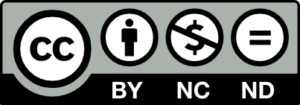
Documentation of Review-Process
- What – What is being reviewed? All papers in the book
- Who – Who conducts the peer review? 2 external peer reviewers
- How – What is the level of anonymity? All identities known
- When – At what stage is the peer review being conducted? Pre-publication
- Peer review is overseen by: member of the editorial board of the edited book
Abstract
Supporting education through digital technology becomes increasingly important. Especially in the light of the Covid-19 pandemic, online teaching and learning has been increased massively. In these precarious times, multiple approaches have been developed to enable the delivery of online education. But also for the regular classroom setting, more and more technologies are developed and implemented in educational practice.
This volume contains the papers presented at the Research On STEM Education in the Digital Age (ROSEDA) Conference, held in Porto, Portugal, in February 2023. The proceedings summarize and link theoretical consi-derations, practical experiences and ideas, and empirical research on the use of technology to enrich students’ learning. Hereby, the papers focus on the STEM subjects of Mathematics, Technology, Engineering and Mathematics.
The ROSEDA Conference and its proceedings are part of the Erasmus+ Strategic Partnership ASYMPTOTE which is co-funded by the European Union.
=====================================================
Matthias Ludwig, Simon Barlovits, Amélia Caldeira & Ana Moura: Research On STEM Education in the Digital Age: Editorial
Abstract: How can STEM education be enriched by means of digital technology? This key question was addressed by the “Research On STEM Education in the Digital Age” conference (ROSEDA). It took place in Porto from February 23 to 25, 2023, and focused on teaching and learning of science, technology, engineering, and mathematics with digital technology. During the conference, various approaches to digitized STEM education were presented, shared, and discussed. For all conference contributions, a short outlook is given in this editorial.
Erste Seite: 1
Letzte Seite: 5
https://doi.org/10.37626/GA9783959872522.0.01
https://wtm-verlag.de/DOI-Deposit/978-3-95987-252-2/978-3-95987-252-2-01.pdf
=====================================================
M. Sencer Corlu, B. Sumeyye Kurutas & Serkan Ozel: Effective Online Professional Development: A Facilitator’s Perspective
Abstract: The purpose of this qualitative study is to explore the key elements that contribute to effective online professional development as perceived by facilitators. The research focuses on a specific program aimed at integrating computer science into mathematics education, involving two cohorts of teachers over a period of two years. The lead facilitator, Haynes, has a master’s degree in mathematics education and 18 years of teaching experience. The study highlights the importance of sparking interest, enabling participants to teach beyond the curriculum, and offering a personalized and diverse approach to online professional development with a focus on mathematics content. Additionally, the findings underline the value of incorporating STEM education theory through cofacilitation with an experienced teacher education researcher. The findings are further discussed in a keynote speech at the ROSEDA conference.
Erste Seite: 9
Letzte Seite: 23
https://doi.org/10.37626/GA9783959872522.0.02
https://wtm-verlag.de/DOI-Deposit/978-3-95987-252-2/978-3-95987-252-2-02.pdf
=====================================================
Martina Geisen & Joerg Zender: Formative Assessment in Online Course – Ideas and Experiences
Abstract: Formative assessment is known for its positive effects on learning outcomes. However, there is still a need for research on the use and successful implementation of this approach. In this article, a university online course about math trails for pre-service teachers is presented, who took the key strategies of formative assessment into account. The concept and the implementation of the course will be presented especially with regard to these key strategies showing how formative assessment can be used and what potential lies in it.
Erste Seite: 25
Letzte Seite: 32
https://doi.org/10.37626/GA9783959872522.0.03
https://wtm-verlag.de/DOI-Deposit/978-3-95987-252-2/978-3-95987-252-2-03.pdf
=====================================================
Michael Kleine & Léon Anhalt: Modeling Tasks under the Perspective of ‘Grundvorstellungen’
Abstract: In automated training in mathematics, as in the ASYMPTOTE project (Adaptive Synchronous Mathematics Learning Paths for Online Teaching in Europe), modelling tasks are a challenge in their creation and technical implementation. In modelling tasks, working with mathematics is concretised in the application area. Mathematical work is understood as a process of modelling: First, mathematical models are derived from a real problem; then the mathematical model is solved; finally, the mathematical solution is interpreted with regard to reality and the original problem is validated by the solution. This process focuses on the transition between the reality and the mathematical level. This paper focuses on this transition and its requirements and explains design principles of modelling tasks using examples from proportion and percentage calculation.
Erste Seite: 33
Letzte Seite: 40
https://doi.org/10.37626/GA9783959872522.0.04
https://wtm-verlag.de/DOI-Deposit/978-3-95987-252-2/978-3-95987-252-2-04.pdf
=====================================================
Michael Kleine & Christian van Randenborgh: Enactive Learning in Mathematics at Home – Theoretical Framework
Abstract: The project „Enactive Learning in Mathematics at Home (EnLeMaH)“ aims to promote enactive work of pupils in the area of functional relationships. This paper establishes the theoretical foundations with respect to an understanding of ‚enactive learning‘, learning fundamental, and experimental work in mathematics. This paper is thus the theoretical basis for a workshop on enactive working.
Erste Seite: 41
Letzte Seite: 47
https://doi.org/10.37626/GA9783959872522.0.05
https://wtm-verlag.de/DOI-Deposit/978-3-95987-252-2/978-3-95987-252-2-05.pdf
=====================================================
Tim Läufer & Matthias Ludwig: Bringing 3D Printing into Student Teachers’ Mathematics Education
Abstract: 3D printing has been used in classes by teachers previously in several studies. In Germany, a lot of schools lack the funds or opportunities to use 3D printing in classes on a broad scale. Therefore, a seminar is in development and in the second iteration at Goethe University to train student teachers (educators) to create their own manipulatives for mathematics classes, where they worked intensely on mathematical and didactical aspects of their manipulatives. We present the underlying theory of 3D printing, and an ongoing teaching experience with student teachers using 3D printing for mathematics education. Additionally, students’ expectations were evaluated to improve future iterations of the seminar. Some manipulatives from the seminar are presented.
Erste Seite: 49
Letzte Seite: 56
https://doi.org/10.37626/GA9783959872522.0.06
https://wtm-verlag.de/DOI-Deposit/978-3-95987-252-2/978-3-95987-252-2-06.pdf
=====================================================
Carlos Vaz de Carvalho: Technology Supported Active Learning
Abstract: Active learning promotes student-centered approaches to the learning process, allowing students to develop skills and competences that traditional, passive learning methods cannot foster. In turn, supporting active learning with digital technology tools creates new possibilities in terms of pedagogical design and implementation. This article shows how active pedagogical methodologies like problem-based learning, design thinking, and others can be effectively supported by digital environments and tools like collaboration platforms, serious games and virtual and augmented reality by presenting several projects that I’ve been involved in the past few years. Therefore, it is also an overview of my recent research and practitioner activity in that domain.
Erste Seite: 59
Letzte Seite: 68
https://doi.org/10.37626/GA9783959872522.0.07
https://wtm-verlag.de/DOI-Deposit/978-3-95987-252-2/978-3-95987-252-2-07.pdf
=====================================================
João Romano Barbosa & João Paulo Pereira: Geometry Mapping Tool: Improvements on a Descriptive Geometry Learning Tool
Abstract: Over the past decades, the technological presence has been increasing in education, producing new applications and digital platforms to assist with learning. This technological shift raises the achievement of students and promotes better school performance. This paper aims to explore the improvements made on Geometry Mapping Tool, a web application to support the teaching of Descriptive Geometry, specifically, the Monge method. The improvements were result of gathering criticism from students and professors in the field of study. The decisions made to improve the tool can provide useful insights to other educational tools. The web app was then re-evaluated to capture the feedback on the changes made and additional improvements.
Erste Seite: 69
Letzte Seite: 76
https://doi.org/10.37626/GA9783959872522.0.08
https://wtm-verlag.de/DOI-Deposit/978-3-95987-252-2/978-3-95987-252-2-08.pdf
=====================================================
Angélica Benito, Álvaro Nolla, Ariadna Gómezescobar, Elena Sánchez & Carlos Ajenjo: An Experience with Augmented Math Trails and Service-Learning in Initial Teacher Training
Abstract: We present the ongoing project developed at the Universidad Autónoma de Madrid (Spain) using math trails in Initial Teacher Training with the aim that they can incorporate this educational resource into their future professional career. The learning experience is an integrated project focused on the creation of math trails by prospective students as a valuable outdoor problem-posing activity. In addition, it includes a two-step evaluation process that, first, allows prospective teachers to assess each other’s routes, and secondly, they are tested by students as a service-learning activity. The math trails used in the project include mobile technology as an enriching element, combining the experience of using MathCityMap and the Augmented Reality tools of GeoGebra within the same project.
Erste Seite: 77
Letzte Seite: 84
https://doi.org/10.37626/GA9783959872522.0.09
https://wtm-verlag.de/DOI-Deposit/978-3-95987-252-2/978-3-95987-252-2-09.pdf
=====================================================
Adi Nur Cahyono: Virtual Reality STEM Trails: Exploring Math Trails with STEM Education Approach in a Virtual World
Abstract: This study explores how STEM-based math trails may be conducted virtually. We used the STEM Education approach, math trails concept, and virtual reality technology to develop a town-based STEM learning environment. In this project, a virtual reality mobile app was produced that can be used with Cardboard VR. Teachers build virtual trails with mathematics tasks related to municipal landmarks. Students utilize a virtual reality program on their phones to explore the trail. They employ the mathematical modeling cycle to solve real-world STEM problems. These activities can be done anywhere, anytime using cutting-edge technology. Experiments and deployment in several contexts are needed.
Erste Seite: 85
Letzte Seite: 90
https://doi.org/10.37626/GA9783959872522.0.10
https://wtm-verlag.de/DOI-Deposit/978-3-95987-252-2/978-3-95987-252-2-10.pdf
=====================================================
Amélia Caldeira, Sofia Lopes, Alexandra R. Costa & Isabel Figueiredo: Learning by Teaching with Videos – An Integration Strategy to Promote Mathematical Communication among Students of Higher Education
Abstract: This paper intends to present the LIGHTS (LearnInG by teacHing wiTh videoS) project that aims to promote a better academic inclusion of new students in an engineering school (ISEP), in the sense of their full integration into the new academic life, making use of their mathematical knowledge and communication skills. The pandemic affected face-to-face communication and in-person socialization. We present the students‘ opinions about the challenge they faced when participating in the LIGHTS project during the Covid-19 pandemic.
Erste Seite: 91
Letzte Seite: 98
https://doi.org/10.37626/GA9783959872522.0.11
https://wtm-verlag.de/DOI-Deposit/978-3-95987-252-2/978-3-95987-252-2-11.pdf
=====================================================
Renata Carvalho & Claudia Lázaro: Project LEARN+: An Opportunity to Develop Mathematics Learning
Abstract: In this communication, we present the LEARN+ project and the teacher training model using the MILAGE LEARN+ platform for the teaching and learning of mathematics, which have been carried out by the Associação de Professores de Matemática (APM) from Portugal and the Federación Española de Sociedades de Profesores de Matemáticas (FESPM) from Spain, partners institutions in the Erasmus+ LEARN+ project.
Erste Seite: 99
Letzte Seite: 106
https://doi.org/10.37626/GA9783959872522.0.12
https://wtm-verlag.de/DOI-Deposit/978-3-95987-252-2/978-3-95987-252-2-12.pdf
=====================================================
José Manuel Dos Santos Dos Santos, Jaime Carvalho e Silva & Zsolt Lavicza: Tasks and Learning Paths in Asymptote and GeoGebra
Abstract: Automatic tutoring systems allow teachers to design tasks to assist students‘ learning processes. Here we analyse mathematics automatic feedback tasks built with GeoGebra and Asymptote; each task included a series of decisions about pedagogical and curricular strategies inherent to the tasks proposed, related whit a hypothetical learning trajectory. In this exploratory study, we aim to understand views about ATS by analysing data collected from six future teachers and two secondary students. The results reveal that the analysed tasks and learning graph were adjusted, provoked interest in the students, and there is evidence to have triggered a-didactic and mathematical situations with user engagement. Although automatic feedback GeoGebra tasks can provide several mathematics representations and ways of user interaction, they require more creator domain technology; hence, constructing the learning graph is easier with Asymptote.
Erste Seite: 107
Letzte Seite: 114
https://doi.org/10.37626/GA9783959872522.0.13
https://wtm-verlag.de/DOI-Deposit/978-3-95987-252-2/978-3-95987-252-2-13.pdf
=====================================================
Simone Jablonski: Digital Support of Mathematical Modelling: The Role of Hints and Feedback in MathCityMap
Abstract: Mathematical modelling addresses numerous demands of modern mathematics education: The learning of mathematics is directly linked to reality and students learn impressively what they can use mathematics for. At the same time, these tasks are very challenging for students, especially when the tasks need to be structured and validated without the immediate help of a teacher. Modern approaches, such as MathCityMap, pursue the support of modelling activities with digital technologies. In this paper, the potential of MathCityMap features like hints, solution validation, and sample solution are explored in modelling tasks in different contexts. The results show that especially the solution validation feature makes clear that sometimes a second run of the modeling circle may be necessary. Furthermore, practical observations on hint usage emerge, which should be considered in future activities, i.e. in terms of modelling activities in the context of distance and online education.
Erste Seite: 115
Letzte Seite: 122
https://doi.org/10.37626/GA9783959872522.0.14
https://wtm-verlag.de/DOI-Deposit/978-3-95987-252-2/978-3-95987-252-2-14.pdf
=====================================================
Rebecca S. Stäter, Tim Läufer & Matthias Ludwig: Teaching Computational Thinking with <colette/>
Abstract: Computational Thinking (CT) is a necessary skillset to navigate and participate in our digitalized world. It is, thus, imperative to teach this skillset in school. Because CT is not automatically acquired simply by using digital tools, but it needs to be taught deliberately. However, a lack of easy-to-use teaching material and teacher training has been shown to hinder the adoption of CT-specific education in the classroom. Here we show a low-threshold approach to teaching CT using the <colette/> web portal and app. The web portal provides a convenient way for teachers to create tasks and the app allows students to display, solve, and review the tasks. Teachers create custom paths by adapting the predefined task family templates, each addressing a specific CT-skill. In this way, <colette/> facilitates teaching CT and integrating it into various school subjects.
Erste Seite: 123
Letzte Seite: 130
https://doi.org/10.37626/GA9783959872522.0.15
https://wtm-verlag.de/DOI-Deposit/978-3-95987-252-2/978-3-95987-252-2-15.pdf
=====================================================
Osama Swidan: Positive Side of the Pandemic, Does it Really Exist?
Abstract: The immediate shift from face-to-face to distance instruction caused by the Covid-19 pandemic has raised teachers’ awareness of the significant role that digital tools can play in educational processes. This shift forced teachers to use different kinds of digital technologies in various ways to overcome the challenges they encountered as a result of the pandemic. In this keynote talk, I will discuss how teachers use digital tools for educational proposes, aiming to extract insight regarding how such tools can be used beyond the Covid-19 period. In addition, I will present innovative approaches towards using digital tools, the need for which arose during the lockdown period, and how these approaches can be integrated into ordinary educational sessions at schools.
Erste Seite: 133
Letzte Seite: 143
https://doi.org/10.37626/GA9783959872522.0.16
https://wtm-verlag.de/DOI-Deposit/978-3-95987-252-2/978-3-95987-252-2-16.pdf
=====================================================
Amélia Caldeira, Isabel Figueiredo, Alexandra Gavina, Isabel Pinto & Ana Júlia Viamonte: Digital Learning Graphs with ASYMPTOTE – Students Feedback
Abstract: The success of digital technology in mathematics education includes the design of digital tools. The ASYMPTOTE system has been developed and improved since March 2021 an effective, powerful, and user-friendly digital tool for online mathematics education. This article aims to present an exploratory study of the use of the ASYMPTOTE system in the classroom. The participants of this exploratory study are engineering students of different degrees of the School of Engineering of the Polytechnic of Porto (ISEP) and in different subjects. In some subjects, the ASYMPTOTE was used in an evaluation context and in others in a training context.
Erste Seite: 145
Letzte Seite: 152
https://doi.org/10.37626/GA9783959872522.0.17
https://wtm-verlag.de/DOI-Deposit/978-3-95987-252-2/978-3-95987-252-2-17.pdf
=====================================================
Georgios Fesakis, Stylianos Triantafyllou, Nikolaos Tzioufas, Despoina Koutsomanoli-Filippaki & Stamatia Volika: A Case Study for the Pedagogical Evaluation of the ASYMPTOTE System
Abstract: This paper examines how primary students use the ASYMPTOTE system and whether it helps them overcome their misconceptions about fractions. Therefore, a case study was conducted for 6th grade students (Primary School) during their regular school schedule. The results proved that some of the students who engaged systematically with ASYMPTOTE’s affordances managed to overcome, to a considerable extent, their misconceptions with the support of their teacher.
Erste Seite: 153
Letzte Seite: 160
https://doi.org/10.37626/GA9783959872522.0.18
https://wtm-verlag.de/DOI-Deposit/978-3-95987-252-2/978-3-95987-252-2-18.pdf
=====================================================
Deng-Xin Ken Oehler, Sina Wetzel & Matthias Ludwig: Enhancing Computer Science Projects with Remote Teaching Elements
Abstract: The COVID-19 pandemic called for the ad-hoc implementation of many different types of remote teaching elements such as the use of particular methods and software. Entering the post-pandemic period, the acquired knowledge during this time of crisis can be used to enrich daily educational practice. In this paper, we introduce the Digitechnikum, a project in which students work on socially relevant computer science projects over the course of one school year. Based on the experiences made with various remote teaching elements during the pandemic, we discuss the use of these tools and methods for computer science projects in a school context in the post-pandemic era.
Erste Seite: 161
Letzte Seite: 168
https://doi.org/10.37626/GA9783959872522.0.19
https://wtm-verlag.de/DOI-Deposit/978-3-95987-252-2/978-3-95987-252-2-19.pdf
=====================================================
Eugenia Taranto, Simon Barlovits, Georgios Fesakis, Stylianos Triantafyllou, Nikolaos Tzioufas, Despoina Koutsomanoli-Filippaki, Stamatia Volika, Maria Flavia Mammana & Matthias Ludwig: The Effect of Teacher Trainings on the Acceptance and Perception of the ASYMPTOTE System
Abstract: This paper aims to present the first studies on an innovative technological system, ASYMPTOTE, designed after the Covid-19 pandemic to enable the teaching and learning of mathematics online. A training course (Long-Term Curriculum) on ASYMPTOTE was offered by three European institutions. The results regarding the reception of the training by the course participants are presented and their willingness to use ASYMPTOTE is investigated. The results show that the participants, both future teachers and in-service teachers, positively perceived the system and plan to integrate it into their teaching practices.
Erste Seite: 169
Letzte Seite: 176
https://doi.org/10.37626/GA9783959872522.0.20
https://wtm-verlag.de/DOI-Deposit/978-3-95987-252-2/978-3-95987-252-2-20.pdf
=====================================================
Amélia Caldeira, Alzira Faria, Ramiro Barbosa, Alexandra Gavina, Isabel Figueiredo & Lino Figueiredo: Teaching Mathematics with Robotics – A STEM Project
Abstract: In an engineering school, mathematics applications are diverse and the ISEP (School of Engineering, Polytechnic of Porto) laboratories are the ideal setting to show just that. In this article we will present the project Matemática, por onde andas? (Mathematics, where are you?). This project is aimed at secondary school students and intends to show that mathematics is transversal to different areas. With the help of technology, mathematics is applied in engineering projects, and in this work we will present an application to robotics.
Erste Seite: 179
Letzte Seite: 182
https://doi.org/10.37626/GA9783959872522.0.21
https://wtm-verlag.de/DOI-Deposit/978-3-95987-252-2/978-3-95987-252-2-21.pdf
=====================================================
Deng-Xin Ken Oehler, Léon Anhalt, Simon Barlovits, Matthias Ludwig & Michael Kleine: The ASYMPTOTE Project: Developing an Adaptive and Synchronous Learning Platform
Abstract: The ASYMPTOTE system enables teachers to deliver adaptive and synchronous mathematics lessons. In doing so, teachers can select or create so-called learning graphs in a web portal. Via code, students can download these learning graphs and work on them in a self-guided manner. In the following, the ASYMPTOTE web portal and app as well as the so-called Digital Classroom feature are briefly introduced. In addition, we introduce the Erasmus+ Strategic Partnership ASYMPTOTE, under which the system of the same name is developed.
Erste Seite: 183
Letzte Seite: 186
https://doi.org/10.37626/GA9783959872522.0.22
https://wtm-verlag.de/DOI-Deposit/978-3-95987-252-2/978-3-95987-252-2-22.pdf
=====================================================
Simon Barlovits, Deng-Xin Ken Oehler, Simone Jablonski & Matthias Ludwig: The ASYMPTOTE Project: Developing a System for Adaptive and Synchronous Online Learning
Abstract: Within the ASYMPTOTE project, a system of the same name has been developed to prepare, conduct, and evaluate mathematics lessons online. It consists of three components, namely a web portal, a mobile app, and the Digital Classroom feature. In the web portal, teachers can select available or create own learning contents. These learning contents can be downloaded by the students to their smartphones by entering a related code in the app. Within the Digital Classroom feature, synchronous mathematics lessons can be carried out – it offers a monitoring tool allowing teacher to retrace students’ working processes. In addition, a chat function is integrated for a direct teacher-student interaction. In the workshop, the participants get to know the ASYMPTOTE system and explore it from the student’s and teacher’s side. In the following, the ASYMPTOTE web portal and app are briefly introduced. In addition, the Erasmus+ project’s outputs are presented.
Erste Seite: 189
Letzte Seite: 192
https://doi.org/10.37626/GA9783959872522.0.23
https://wtm-verlag.de/DOI-Deposit/978-3-95987-252-2/978-3-95987-252-2-23.pdf
=====================================================
Simone Jablonski, Simon Barlovits, Iwan Gurjanow, Philipp Larmann, Matthias Ludwig, Deng-Xin Ken Oehler & Sina Wetzel: Mobile Learning Outside the Classroom with MathCityMap
Abstract: Discovering mathematics in one’s own environment inspires students. Numerous everyday objects offer potentials for posing interesting and motivating measuring tasks. To organize the mathematics lesson outdoors, teachers can create so-called math trails in their environment using the MathCityMap system: a web portal and a smartphone app are available to prepare and conduct a math trail. Equipped with the app and measuring tools, the students work in small groups on the object side. Hereby, the MathCityMap app supports the independent and collaborative learning of students offering hints and direct answer validation. In the following paper, the components of MathCityMap are presented.
Erste Seite: 193
Letzte Seite: 196
https://doi.org/10.37626/GA9783959872522.0.24
https://wtm-verlag.de/DOI-Deposit/978-3-95987-252-2/978-3-95987-252-2-24.pdf
=====================================================
Rebecca S. Stäter, Tim Läufer & Matthias Ludwig: How <colette/> Facilitates Teaching Computational Thinking
Abstract: Although the everyday life of students becomes increasingly digitalized, this process does not necessarily lead to a proficient use and understanding of digital tools. Students must be taught how to use them, but the lack of easy-to-use teaching materials hinders teachers to include Computational Thinking in their lessons. <colette/> is an easy-to-use two-component-system to include Computational Thinking in a variety of school subjects. <colette/> guides teachers to create meaningful tasks and gives students an environment to work on those tasks.
Erste Seite: 197
Letzte Seite: 200
https://doi.org/10.37626/GA9783959872522.0.25
https://wtm-verlag.de/DOI-Deposit/978-3-95987-252-2/978-3-95987-252-2-25.pdf
